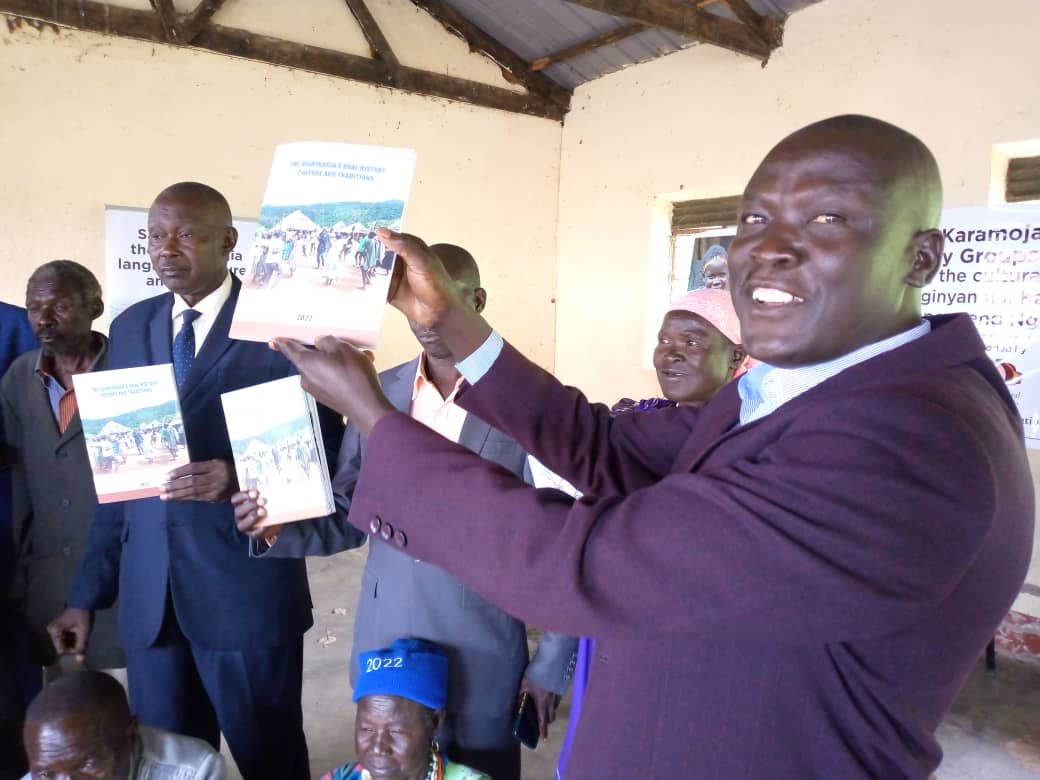The launch of the Nyangia publication and resource materials for learners.
A publication that documents the Nyangia oral history, culture and traditions and resource materials for learners was launched on the 24th of June 2022. The publication was produced to safeguard the Nyangia, especially their language from extinction and to teach the young generation about their culture.
While speaking at the event, the LC5 Chairperson of Karenga district expressed his gratitude to CCFU for supporting their efforts to preserve their culture. He committed to initiating the process that would foster the establishment of a language board in Karenga to strengthen the safeguarding of their languages.
About the publication
This publication on the Nginyangia, their oral history, cultures and traditions was prepared for all ethnic groups in Uganda and other peoples of the world to learn about and recognise the existence of an ethnic minority group known as the Nginyangia (Nyangia people), listed in the 1995 Constitution of the Republic of Uganda as one of the country’s indigenous communities.
The Nginyangia are the people, Nyangia is the place where they live and “Edeb nyangi” is the language they speak.
The Nginyangia are one of the five Indigenous Minority Groups (IMGs) in Northern Karamoja, mostly found in Karenga District. According to the 2014 National census, the Nginyangia were 9,634. The Nginyangia and other IMGs in the region have for a long time faced several challenges related to their identity and recognition, education and access to their language and cultural sites. The group has suffered from negative attitudes and stereotypes that have affected their right to express their culture. The young people who attend school have had to study in a ‘foreign’ language at the expense of their mother tongue. Access to cultural sites and other cultural resources such as indigenous knowledge, skills, beliefs, values and ways of life that reflect positive aspects of their rich and diverse heritage is limited and requires urgent safeguarding.
This publication was compiled through research and a consultative process involving several key informants and focus group discussions with elders from Nyangia in Lobalangit Sub County and Karenga District Local Government. The authors thank them all for their important contributions.
It is expected that this publication will raise the profile of the Nginyangia cultural heritage resources and provide an opportunity for the young Nginyangia to access their language and other cultural resources that have been documented. It is also expected that the publication will enhance advocacy interventions to promote the cultural rights of the Nginyangia.

